
Krabi: A Tropical Paradise of Dramatic Landscapes and Serene Beaches
Krabi, located on the southwestern coast of Thailand, is a serene and picturesque destination that offers a perfect blend of adventure and relaxation. Known for its stunning limestone cliffs, crystal-clear waters, and lush greenery, Krabi is a haven for nature lovers and thrill-seekers alike. The province boasts over 150 islands, each with its own unique charm, making island-hopping a must-do activity. Railay Beach, accessible only by boat, is one of Krabi's most famous spots. Its white sandy shores, turquoise waters, and towering cliffs provide a breathtaking backdrop for rock climbing, kayaking, and snorkeling. For those looking to unwind, the beach's laid-back atmosphere and stunning sunsets offer a perfect retreat. The Phi Phi Islands, made famous by the movie 'The Beach', are another highlight of Krabi. These islands offer some of the best diving and snorkeling opportunities in the region, with vibrant coral reefs and abundant marine life. Back on the mainland, the town of Krabi serves as a gateway to the region's natural wonders, including the Tiger Cave Temple and the Emerald Pool, a natural hot spring nestled in the forest. Krabi's local culture and cuisine are also worth exploring. The night markets in Krabi Town offer a variety of delicious Thai street food, fresh seafood, and unique souvenirs. The warm hospitality of the locals and the rich cultural heritage add to the charm of this tropical paradise.
Local tips in Krabi
- Visit Railay Beach early in the morning to avoid the crowds and enjoy the serene beauty.
- Hire a local longtail boat for island-hopping to explore hidden gems and secluded beaches.
- Pack reef-safe sunscreen to protect the marine life while enjoying water activities.
- Try the local Thai street food at Krabi Town's night markets for an authentic culinary experience.
- Wear comfortable shoes when visiting the Tiger Cave Temple as it involves a steep climb.
- Bring cash as some smaller vendors and markets may not accept credit cards.
Neighbourhoods in Krabi
Krabi: A Tropical Paradise of Dramatic Landscapes and Serene Beaches
Krabi, located on the southwestern coast of Thailand, is a serene and picturesque destination that offers a perfect blend of adventure and relaxation. Known for its stunning limestone cliffs, crystal-clear waters, and lush greenery, Krabi is a haven for nature lovers and thrill-seekers alike. The province boasts over 150 islands, each with its own unique charm, making island-hopping a must-do activity. Railay Beach, accessible only by boat, is one of Krabi's most famous spots. Its white sandy shores, turquoise waters, and towering cliffs provide a breathtaking backdrop for rock climbing, kayaking, and snorkeling. For those looking to unwind, the beach's laid-back atmosphere and stunning sunsets offer a perfect retreat. The Phi Phi Islands, made famous by the movie 'The Beach', are another highlight of Krabi. These islands offer some of the best diving and snorkeling opportunities in the region, with vibrant coral reefs and abundant marine life. Back on the mainland, the town of Krabi serves as a gateway to the region's natural wonders, including the Tiger Cave Temple and the Emerald Pool, a natural hot spring nestled in the forest. Krabi's local culture and cuisine are also worth exploring. The night markets in Krabi Town offer a variety of delicious Thai street food, fresh seafood, and unique souvenirs. The warm hospitality of the locals and the rich cultural heritage add to the charm of this tropical paradise.
When is the best time to go to Krabi?
Iconic landmarks you can’t miss
Wat Tham Suea
Explore the breathtaking Wat Tham Suea, a stunning Buddhist temple in Krabi with panoramic views and spiritual serenity.
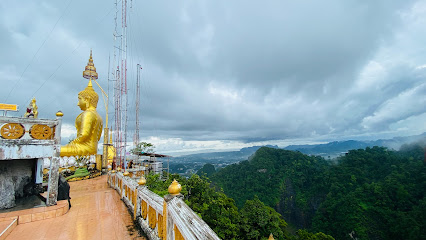
Emerald Pool
Experience the serene beauty of the Emerald Pool in Krabi, Thailand - a perfect natural swimming oasis surrounded by lush landscapes.
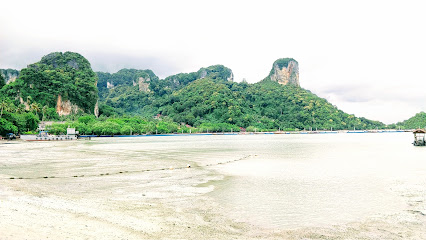
Krabi Town Night Market
Experience the vibrant flavors and local crafts at Krabi Town Night Market, a must-visit destination for an authentic Thai cultural immersion.
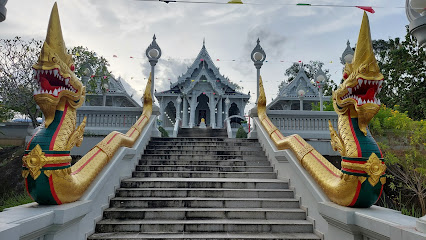
Princess Cave (Railay, Krabi)
Discover the breathtaking beauty and cultural significance of Princess Cave in Railay, Krabi - a must-see destination for every traveler.
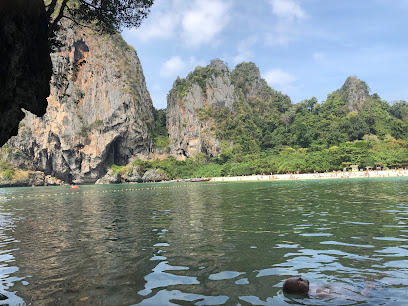
Bamboo Island
Discover the serene beauty of Bamboo Island, a tropical haven in Krabi, Thailand, perfect for sunbathing, snorkeling, and unforgettable adventures.
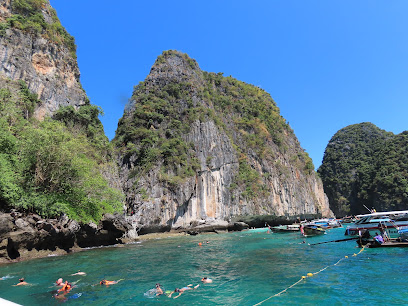
Phra Nang Beach
Discover the breathtaking beauty of Phra Nang Beach, a serene tropical paradise in Krabi, Thailand, perfect for relaxation and adventure.
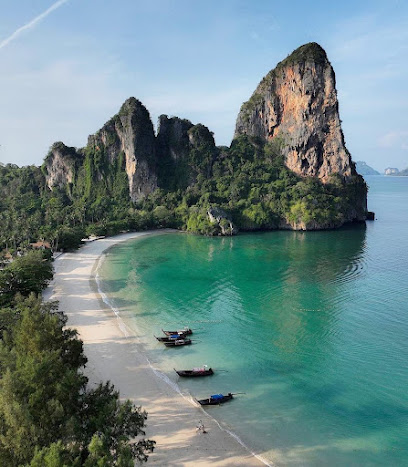
Lanta Old Town
Experience the charm of Lanta Old Town, a historic gem on Ko Lanta, blending culture, cuisine, and stunning coastal views.
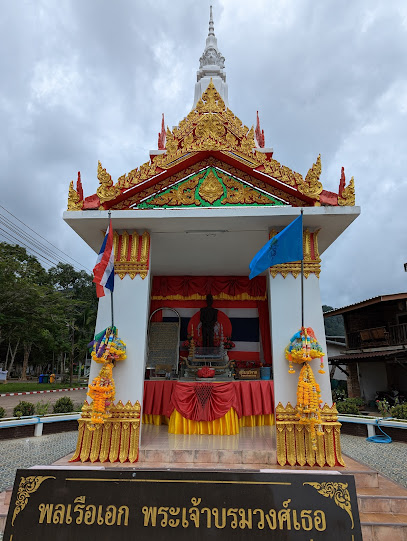
Thale Waek
Discover the breathtaking beauty of Thale Waek in Krabi, Thailand, where stunning landscapes and serene waters create a unique tourist experience.
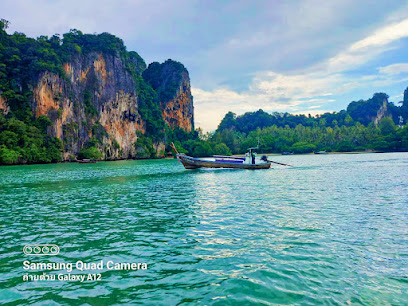
Than Bok Khorani National Park
Explore the breathtaking landscapes of Than Bok Khorani National Park in Krabi, Thailand, where natural beauty and adventure await every traveler.
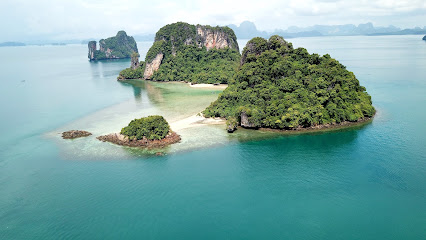
Chao Fah Park
Discover tranquility at Chao Fah Park, a serene retreat in Krabi, Thailand, surrounded by lush greenery and stunning landscapes for all to enjoy.
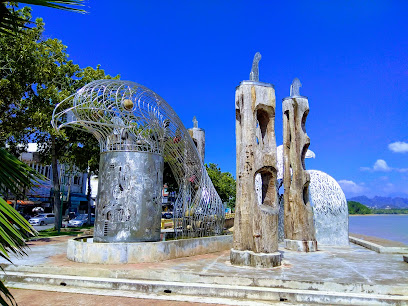
Shell Cemetery
Experience the ancient beauty of Shell Cemetery, a unique geological wonder in Krabi showcasing millions of fossilized shells amidst tranquil surroundings.
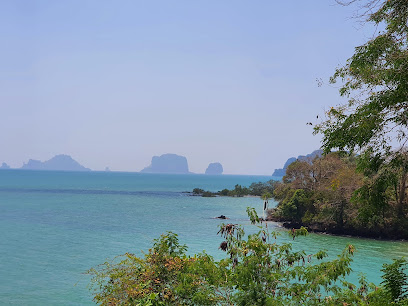
The Mud Crabs Sculpture
Explore the breathtaking Mud Crabs Sculpture in Krabi, a captivating symbol of local culture and marine life that enchants every visitor.
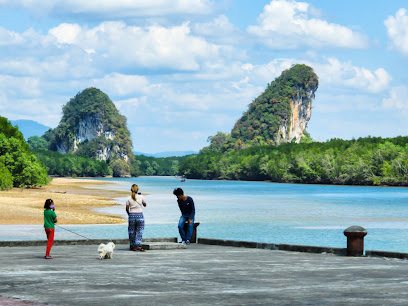
Maharaj Market
Discover the vibrant Maharaj Market in Krabi Town, where local culture, delicious street food, and unique souvenirs await every traveler.
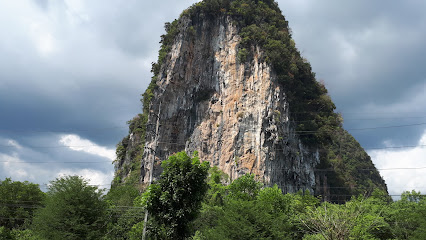
Thara Park
Experience the tranquility of Thara Park, a lush green oasis in Krabi, ideal for relaxation, family fun, and cultural encounters.
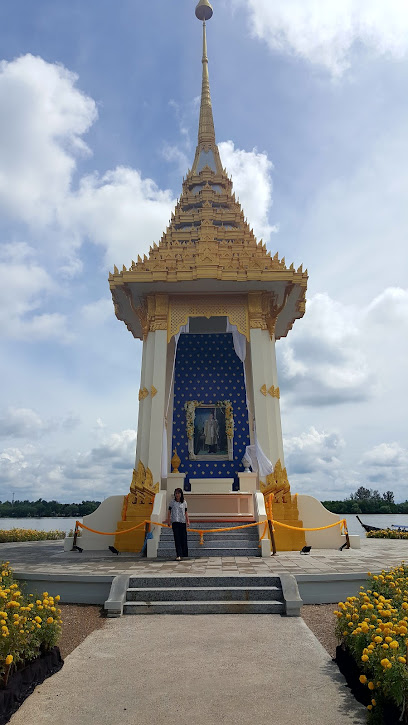
Koh Pakbia
Explore the stunning beauty of Koh Pakbia, a hidden gem in Krabi, Thailand, where adventure and tranquility meet in a tropical paradise.
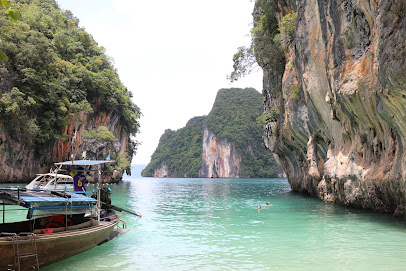
Unmissable attractions to see
Ao Nang Beach
Explore the breathtaking Ao Nang Beach, a tropical paradise in Krabi, Thailand, where adventure meets relaxation amidst stunning natural landscapes.
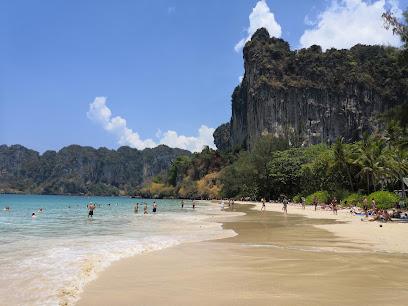
Wat Tham Suea
Experience the spiritual serenity and breathtaking views at Wat Tham Suea, Krabi's iconic Tiger Cave Temple, a must-visit for every traveler.
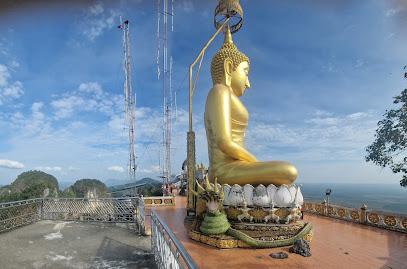
Emerald Pool
Discover the stunning Emerald Pool in Krabi, a natural hot spring with vibrant turquoise waters surrounded by lush rainforest, perfect for relaxation.
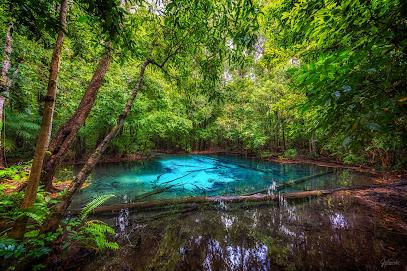
Krabi Town Night Market
Discover the vibrant flavors and unique crafts at Krabi Town Night Market, a must-visit for all travelers exploring Krabi's rich culture.
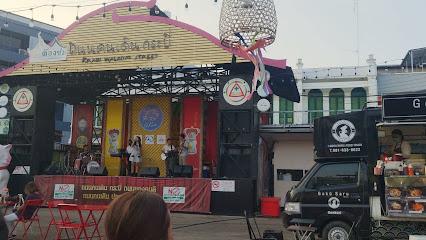
Pi Leh Bay
Experience the stunning beauty of Pi Leh Bay in Krabi, Thailand, where crystal-clear waters meet breathtaking limestone cliffs for a perfect getaway.
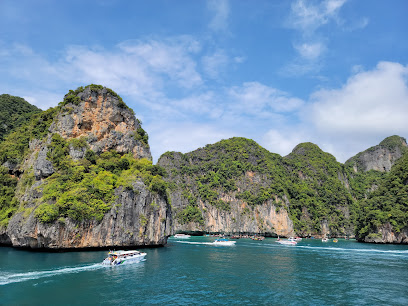
Ao Nang Landmark Night Market
Discover the flavors and crafts of Krabi at Ao Nang Landmark Night Market, a lively hub of local culture and culinary delights.
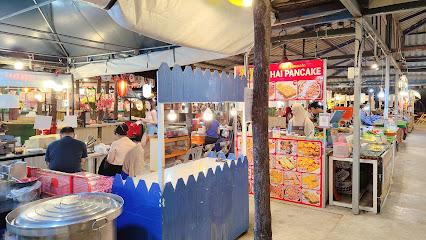
Massage Corner
Experience the ultimate relaxation at Massage Corner, a tranquil oasis in Ao Nang, Krabi, Thailand, offering exceptional spa treatments for every traveler.
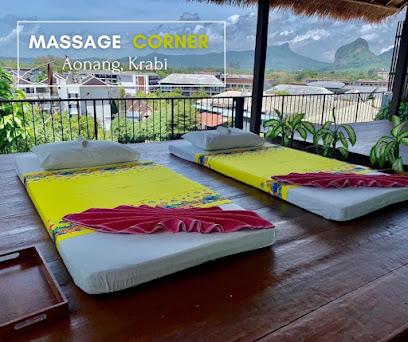
Railay Beach
Experience the breathtaking beauty and tranquility of Railay Beach, a hidden gem in Ao Nang, Krabi, Thailand, perfect for adventure and relaxation.
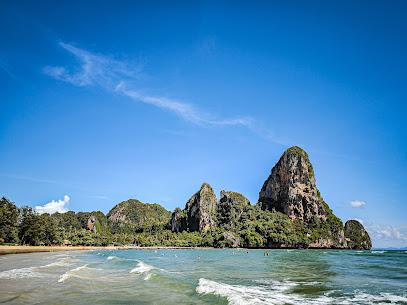
Thale Waek
Experience the stunning beauty of Thale Waek, a mesmerizing sandbar in Krabi, where the sea unveils its secrets and tranquility reigns.
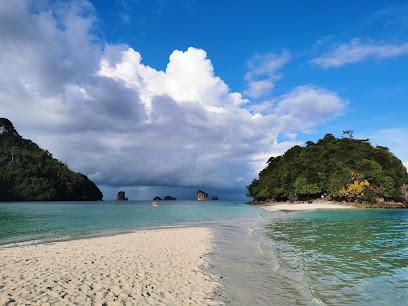
Viking Cave
Discover the enchanting Viking Cave in Krabi, a breathtaking tourist attraction rich in history and natural beauty, perfect for every traveler.
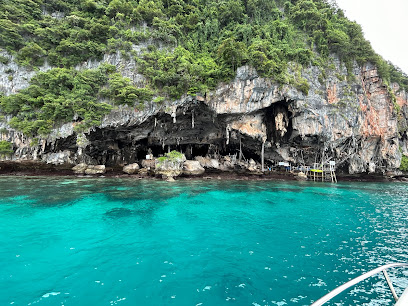
The Mud Crabs Sculpture
Explore The Mud Crabs Sculpture in Krabi, a stunning tribute to local culture and artistry, perfect for photography and relaxation amidst nature.
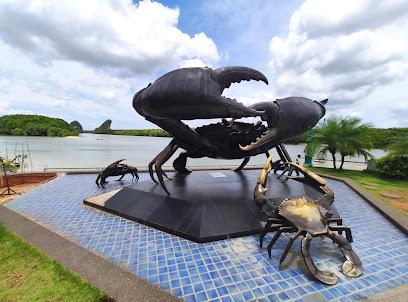
Shell Cemetery
Discover the hidden beauty of Shell Cemetery in Krabi, Thailand – a serene tourist attraction showcasing fascinating fossilized shells and stunning coastal views.
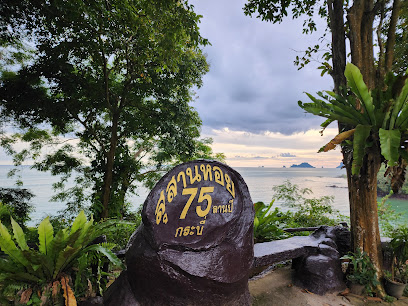
Ban Sainai Resort Aonang, Krabi (บ้านใสในรีสอร์ต อ่าวนาง กระบี่)
Discover the serenity of Ban Sainai Resort in Ao Nang, Krabi - a perfect blend of tranquility, luxury, and adventure in a tropical paradise.

Din Daeng Doi
Experience the serene beauty of Din Daeng Doi in Krabi, a perfect blend of nature, tranquility, and adventure in Thailand.
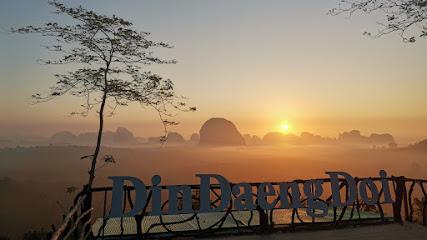
Saline Hot Spring Khlong Thom
Experience the rejuvenating power of nature at Saline Hot Spring Khlong Thom in Krabi, Thailand - a serene oasis for relaxation.
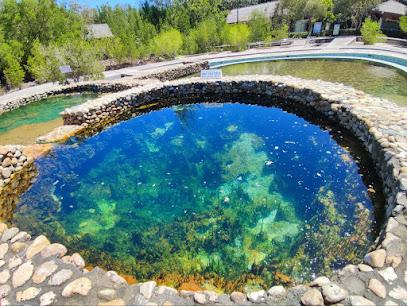
Essential places to dine
Tandoori Night's Restaurant
Discover Tandoori Night's Restaurant in Ao Nang: where authentic Indian flavors meet Thai hospitality in a vibrant setting.
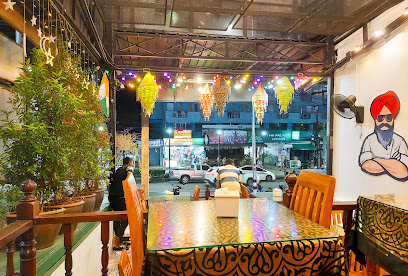
Pure Vegetarian Govinda's Restaurant
Discover Pure Vegetarian Govinda's Restaurant in Ao Nang - where delicious plant-based cuisine meets authentic Thai flavors in an inviting atmosphere.
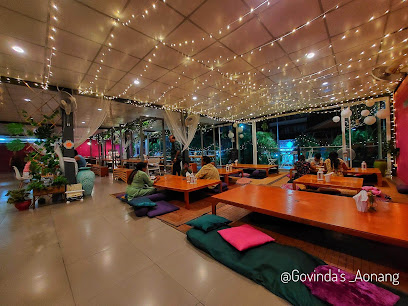
Family Thaifood & Seafood
Experience authentic Thai cuisine at Family Thaifood & Seafood in Ao Nang, where fresh ingredients meet traditional recipes for an unforgettable meal.
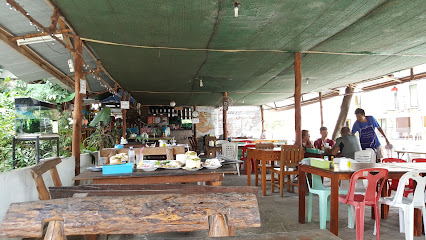
The Last Fisherman Bar
Experience delectable seafood with stunning views at The Last Fisherman Bar in Ao Nang - your ideal dining spot in Krabi.
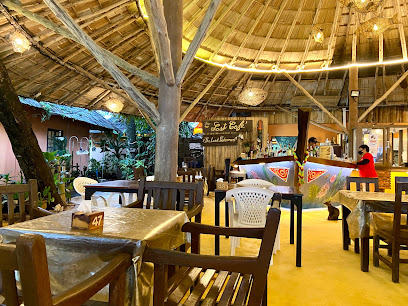
Ali Baba Restaurant, Thai Food, Indian food, Vegetarian & Vegan Food, Halal Food
Discover the flavors of Thailand and India at Ali Baba Restaurant in Ao Nang – where delicious halal cuisine meets vibrant ambiance.
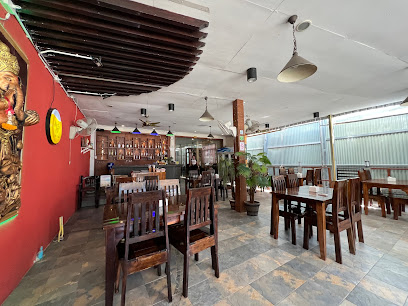
Kiran Kitchen Restaurant, Ao nang Beach, Center Point, Krabi - Thailand
Discover Kiran Kitchen Restaurant at Ao Nang Beach for exquisite Thai cuisine amidst breathtaking views in Krabi.
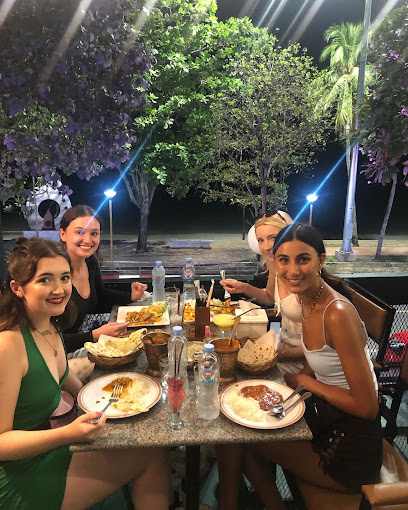
THAI ME UP PANG Restaurant and Bar
Experience authentic Thai cuisine at THAI ME UP PANG Restaurant and Bar in Ao Nang - where delicious flavors meet warm hospitality.
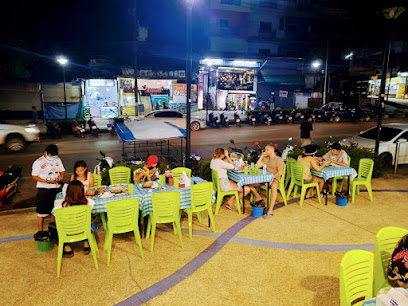
Khaothong Hill
Experience breathtaking views and exquisite flavors at Khaothong Hill – Krabi's premier restaurant destination.
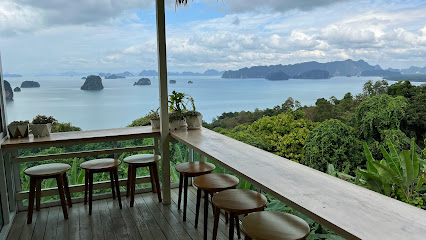
Ruen Mai Restaurant
Experience the essence of Thailand at Ruen Mai Restaurant in Krabi – where every dish tells a story of flavor and tradition.
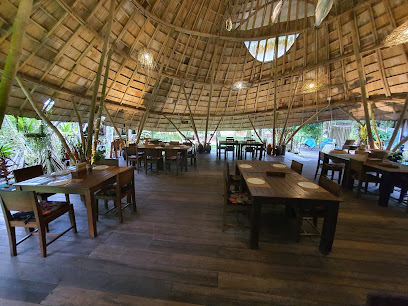
Jungle Kitchen
Discover authentic Thai cuisine at Jungle Kitchen in Ao Nang – where every dish tells a story.
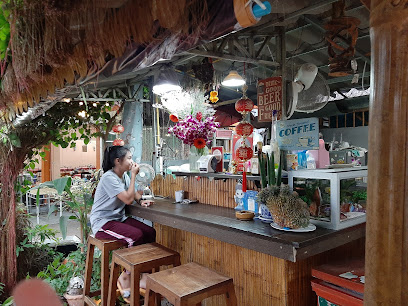
King Kitchen
Experience authentic Indian cuisine at King Kitchen in Ao Nang, Krabi - where spices meet tradition for an unforgettable culinary journey.
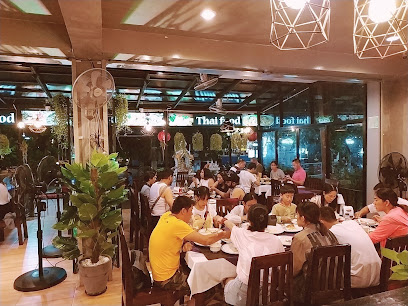
Umberto's Cuisine
Experience authentic Italian flavors at Umberto's Cuisine in Ao Nang, Krabi - where every meal is a celebration of taste and tradition.
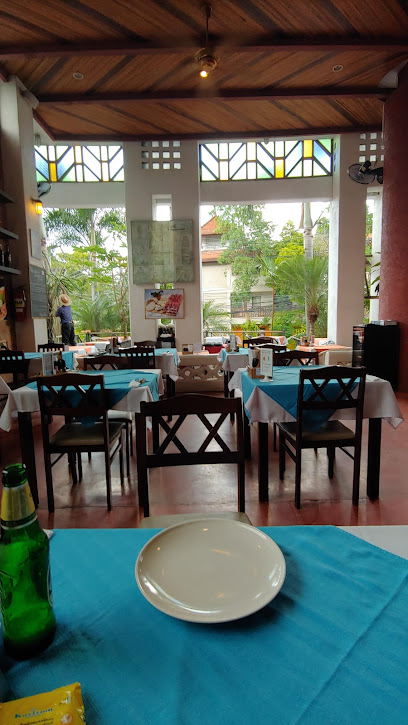
Carnivore Steak & Grill
Experience the ultimate steak dining at Carnivore Steak & Grill in Ao Nang, where quality meets Mediterranean flair amidst Krabi's stunning scenery.
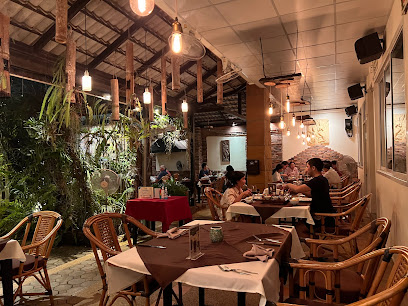
Anchalee Restaurant
Savor the rich flavors of Thailand at Anchalee Restaurant - a family-friendly haven for authentic Thai cuisine in Krabi.
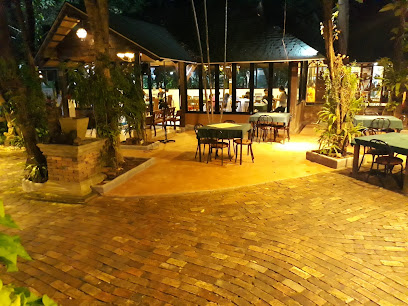
The Hilltop Ao Nang
Experience exquisite Thai cuisine amidst breathtaking views at The Hilltop Ao Nang in Krabi.
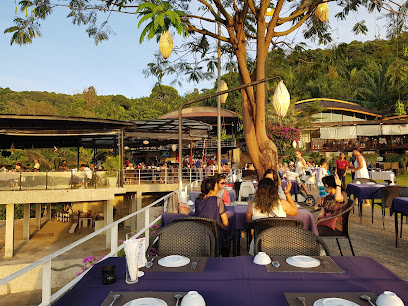
Markets, malls and hidden boutiques
Big C Supercenter Krabi
Explore Big C Supercenter Krabi for a vibrant shopping experience filled with local flavors, fresh produce, and unique Thai products.
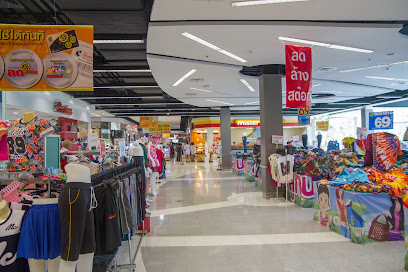
Vogue Shopping Center
Discover the vibrant Vogue Shopping Center in Krabi, a premier shopping destination offering a mix of local and international brands, dining, and entertainment.
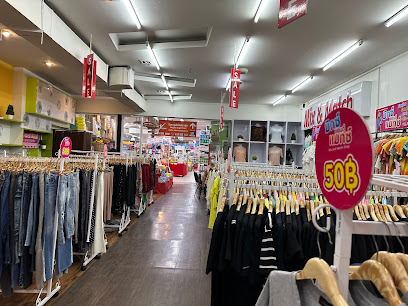
Outlet Village Krabi
Discover unbeatable deals and a vibrant shopping experience at Outlet Village Krabi, your go-to destination for international brands and unique finds in Thailand.
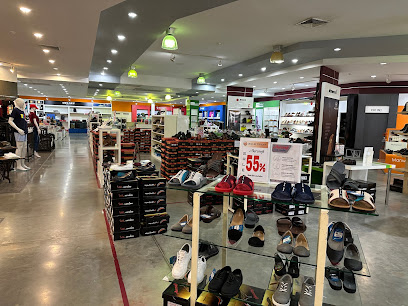
Jee-Or Souvenirs Shop
Explore the best of Krabi at Jee-Or Souvenirs Shop, where local crafts, delicious treats, and unique jewelry await every traveler.
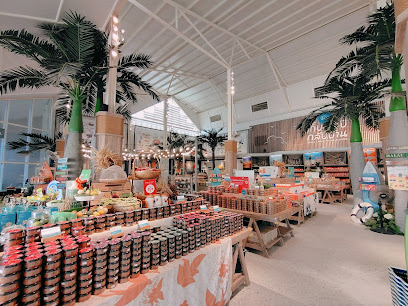
Ao-nang beach walk market
Explore the vibrant Ao Nang Beach Walk Market, where local crafts, delicious street food, and unforgettable experiences await in Krabi, Thailand.
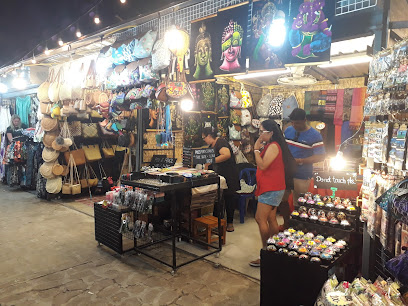
Kan-Eng
Explore the vibrant Kan-Eng shopping mall in Krabi, where local culture meets modern retail experiences and delectable dining options.
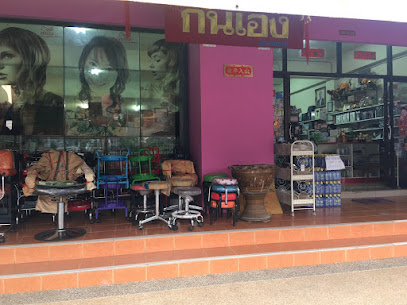
Ao Nang Whisky
Discover a world of spirits at Ao Nang Whisky, your go-to liquor store in the heart of Ao Nang, Krabi, offering local and international beverages.
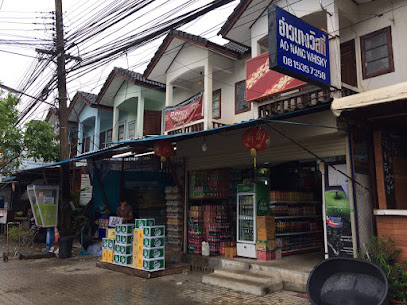
Makan Cannabis
Explore Makan Cannabis in Krabi for a unique cannabis shopping experience, featuring high-quality products and expert guidance.
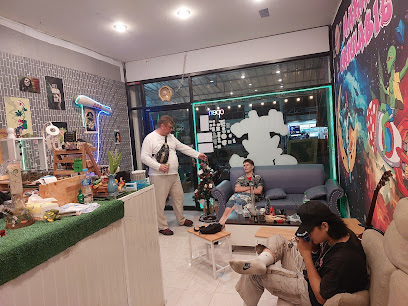
Evening Street Market
Explore Krabi's Evening Street Market for an authentic taste of local culture, delicious street food, and unique handmade crafts.
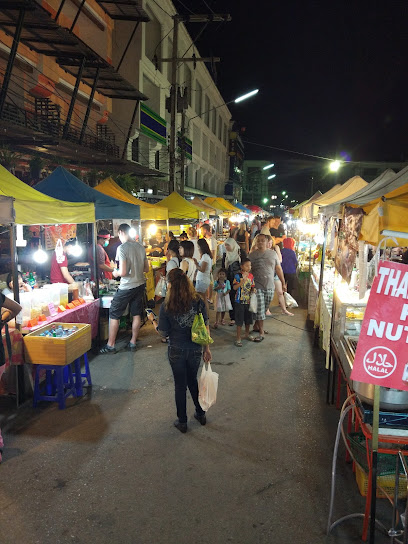
กระบี่อันดามันเพิร์ล
Explore exquisite handcrafted jewelry at Krabi Andaman Pearl, where traditional Thai artistry meets contemporary elegance in the heart of Krabi.
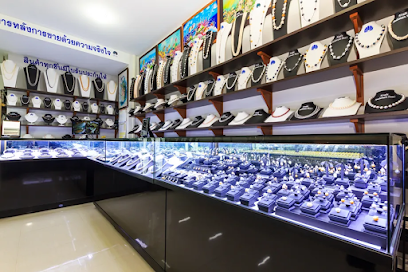
Armani Collection AO nang Center Point Ao nang Krabi 81180 Thailand
Shop the latest high-end fashion collections at Armani Collection in Ao Nang, Krabi, Thailand. Elevate your style with luxury clothing and accessories.
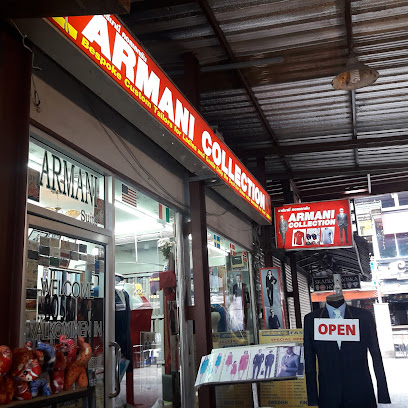
Varich Krabi Batik (Batik Center Krabi)
Explore the vibrant world of Thai batik at Varich Krabi Batik, where tradition meets contemporary design in stunning textiles and clothing.
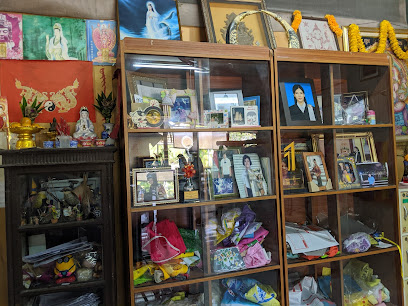
Quiksilver Krabi
Discover the best swimwear and beach essentials at Quiksilver Krabi, your go-to shop for a perfect day in the sun.
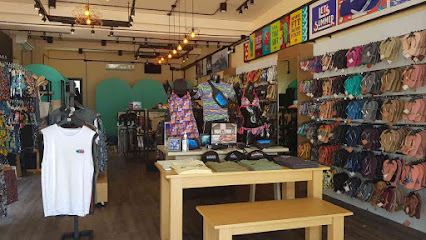
ร้านเครื่องเขียน กระบี่ - Stationery Store Krabi
Explore creativity and craftsmanship at Stationery Store Krabi, your go-to destination for art supplies and unique gifts in Thailand.
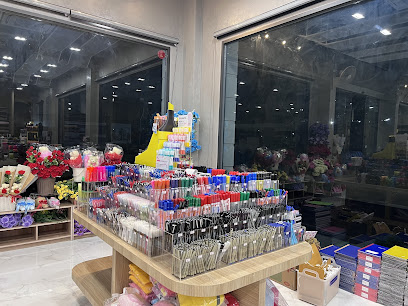
Merry Berry
Discover unique handcrafted gifts and local treasures at Merry Berry, Krabi's charming gift shop, perfect for souvenirs and mementos.
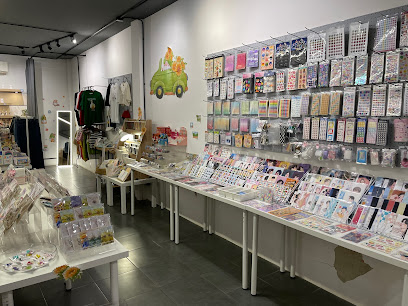
Essential bars & hidden hideouts
Boogie Bar
Discover the lively Boogie Bar in Ao Nang, Krabi, where vibrant nightlife, delicious cocktails, and unforgettable memories await you.
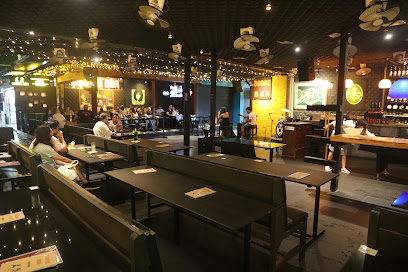
Reggae Bar
Discover the lively ambiance of Reggae Bar in Ao Nang, Krabi, where vibrant music, refreshing drinks, and a friendly atmosphere await.
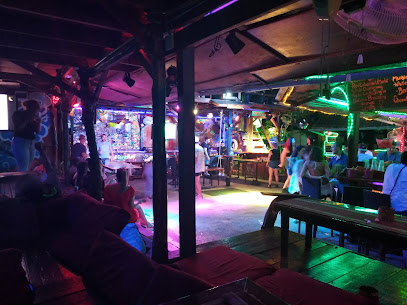
Carlito's bar
Experience the vibrant nightlife of Ao Nang at Carlito's Bar, where tropical drinks and lively entertainment create unforgettable memories.
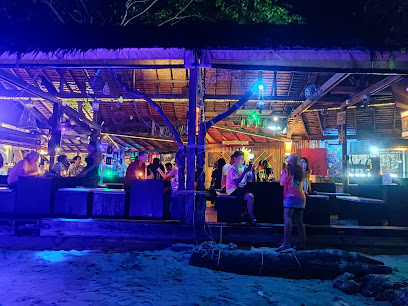
CHILLING BAR
Discover the vibrant atmosphere and delicious flavors at Chilling Bar in Ao Nang, Krabi, where relaxation meets tropical indulgence.
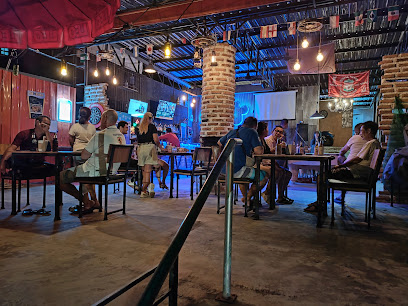
Full Moon Bar and Restaurant
Discover the vibrant nightlife and delicious cuisine at Full Moon Bar and Restaurant in Ao Nang, Krabi – the ultimate tropical getaway.
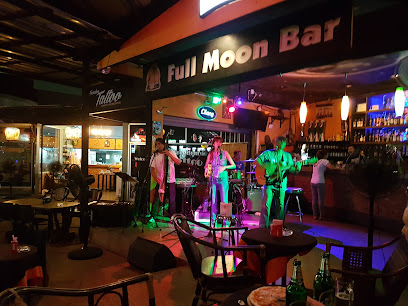
Reggae Town Bar and Restaurant
Experience the vibrant nightlife at Reggae Town Bar and Restaurant in Ao Nang, Krabi, where music, food, and fun come together.
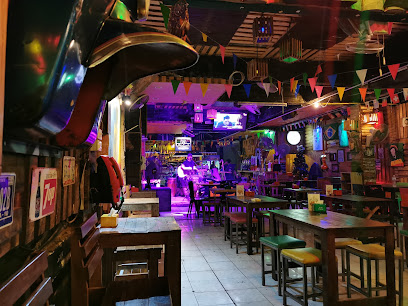
Bamboo bar@ Anong krabi
Discover the vibrant nightlife at Bamboo Bar in Ao Nang, Krabi, where tropical drinks and lively entertainment await you.
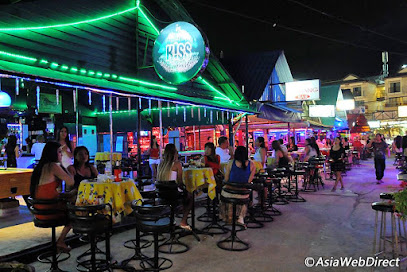
Booze Bar
Experience vibrant nightlife at Booze Bar in Krabi, where stunning waterfront views and a lively atmosphere await you.
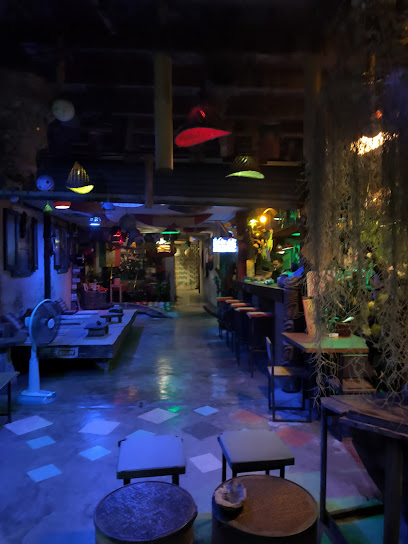
Ole Bar
Experience the vibrant nightlife of Krabi at Ole Bar, a live music haven with a laid-back atmosphere and amazing local talent.
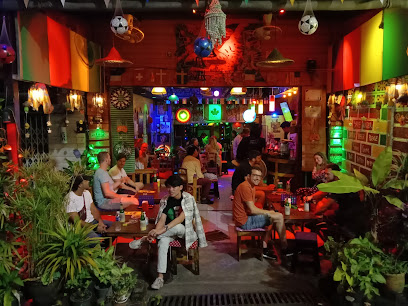
The Hobby Hops Craft Beer Bar And Restaurant At Krabi
Discover the vibrant craft beer scene at The Hobby Hops in Krabi, where great brews meet delicious food in a lively atmosphere.
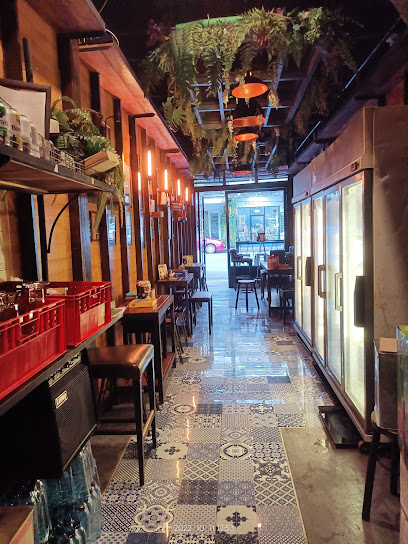
Amy's
Discover the vibrant nightlife of Ao Nang at Amy's, where refreshing drinks and a welcoming atmosphere await you.
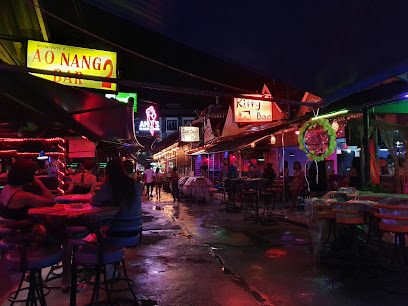
Mr Long Bar
Discover the lively atmosphere and unique cocktails at Mr Long Bar, a must-visit hotspot in Ao Nang, Krabi for an unforgettable night out.
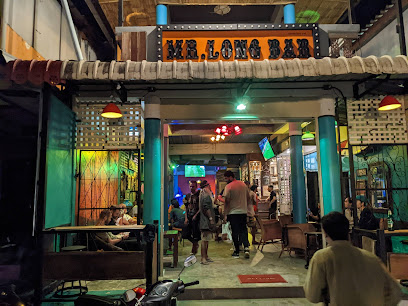
Kiss Bar Ao Nang
Experience the vibrant nightlife at Kiss Bar Ao Nang, where great drinks and stunning views come together in Krabi's most exciting beach town.
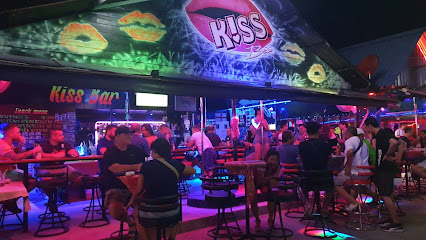
Arty Momma Rasta Bar
Experience the vibrant nightlife of Krabi at Arty Momma Rasta Bar, where great drinks and live music create unforgettable memories.
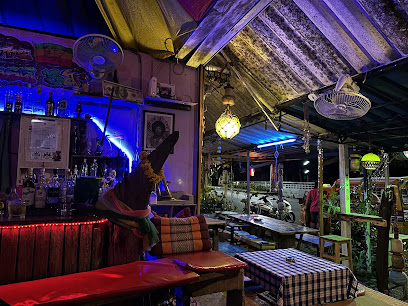
Upbeat Bar (was Loft R&B)
Discover the energetic vibe of Upbeat Bar in Ao Nang, where delicious food and vibrant nightlife meet in a perfect blend.
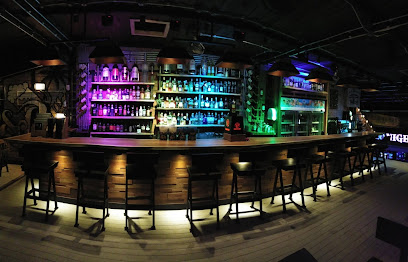
Local Phrases
-
- Helloสวัสดี
[sawasdee] - Goodbyeลาก่อน
[laa kon] - Yesใช่
[chai] - Noไม่
[mai] - Please/You're welcomeโปรด
[bproht] - Thank youขอบคุณ
[khob khun] - Excuse me/Sorryขอโทษ
[khaw toht] - How are you?สุขสันต์หรือยัง
[suk san reu yang] - Fine. And you?สบายดี คุณล่ะ
[sabai dee kun la] - Do you speak English?คุณพูดภาษาอังกฤษได้ไหม
[kun poot pha saa ang grit dai mai] - I don't understandฉันไม่เข้าใจ
[chan mai khao jai]
- Helloสวัสดี
-
- I'd like to see the menu, pleaseขอดูเมนูหน่อย
[khaw doo menu noi] - I don't eat meatฉันไม่กินเนื้อ
[chan mai kin neuua] - Cheers!ชน
[chon] - I would like to pay, pleaseขอจ่ายเงินหน่อย
[khaw jai ngoen noi]
- I'd like to see the menu, pleaseขอดูเมนูหน่อย
-
- Help!ช่วยด้วย
[chuay duay] - Go away!ไปให้มันไกลๆ
[bpai hai man glai glai] - Call the Police!โทรตำรวจ
[thor tamruat] - Call a doctor!โทรหมอ
[thor mor] - I'm lostฉันเสียหาย
[chan sia hai] - I'm illฉันไม่สบาย
[chan mai sabai]
- Help!ช่วยด้วย
-
- I'd like to buy...ฉันต้องการซื้อ...
[chan tong kaan seuu...] - I'm just lookingฉันแค่ดูอยู่
[chan khae duu yuu] - How much is it?ราคาเท่าไหร่
[raa kha tao rai] - That's too expensiveแพงเกินไป
[paeng gein bpai] - Can you lower the price?ลดราคาได้ไหม
[lot raa kha dai mai]
- I'd like to buy...ฉันต้องการซื้อ...
-
- What time is it?กี่โมงแล้ว
[gee mong laeo] - It's one o'clockเป็นโมง
[pen mong] - Half past (10)สามสิบครึ่ง
[saam sip khreung] - Morningเช้า
[chao] - Afternoonบ่าย
[bai] - Eveningเย็น
[yen] - Yesterdayเมื่อวาน
[meua waan] - Todayวันนี้
[wan nee] - Tomorrowพรุ่งนี้
[phrung nee] - 1หนึ่ง
[neung] - 2สอง
[song] - 3สาม
[saam] - 4สี่
[see] - 5ห้า
[ha] - 6หก
[hok] - 7เจ็ด
[jet] - 8แปด
[paet] - 9เก้า
[gao] - 10สิบ
[sip]
- What time is it?กี่โมงแล้ว
-
- Where's a/the...?...อยู่ที่ไหน
[...yuu tee nai] - What's the address?ที่อยู่อย่างไร
[tee yuu yang rai] - Can you show me (on the map)?คุณสามารถแสดงให้ฉันดูได้ไหม
[kun sa maat sa daeng hai chan duu dai mai] - When's the next (bus)?รถบัสต่อไปเมื่อไหร่
[rot bus dtor bpai meua rai] - A ticket (to ....)ตั๋ว (ไป...)
[dtua (bpai...)]
- Where's a/the...?...อยู่ที่ไหน
History of Krabi
-
Krabi has a rich prehistoric heritage with archaeological evidence suggesting that the area was inhabited as far back as 25,000–35,000 years ago. Ancient tools, cave paintings, and skeletal remains have been discovered in various caves and rock shelters, shedding light on the early human settlements that once thrived here.
-
During the 8th to 13th centuries, Krabi was part of the Ligor Kingdom, which was a part of the larger Srivijaya Empire. This period saw the development of trade routes and the spread of Buddhism, marking the beginning of Krabi's cultural and religious history. Several archaeological sites from this era have been found, including inscriptions and temple ruins.
-
In the 13th century, Krabi fell under the influence of the Kingdom of Nakhon Si Thammarat. This period was marked by increased regional influence and the construction of important religious structures. The town of Krabi began to develop as a significant administrative and trading center.
-
During the 18th and 19th centuries, Krabi became an important hub for the tin mining industry. The discovery of tin deposits attracted Chinese laborers and European traders, leading to economic growth and increased cultural exchanges. The town's architecture and urban layout still bear traces of this colonial era.
-
Krabi, like much of Thailand, was occupied by Japanese forces during World War II. The region played a strategic role due to its coastal location and proximity to the Andaman Sea. This period brought significant hardships but also led to the development of infrastructure that would benefit the region in the post-war years.
-
Following World War II, Krabi underwent significant development. The advent of air travel and the rise of the global tourism industry transformed Krabi into a major tourist destination. The natural beauty of its beaches, cliffs, and islands attracted visitors from around the world, fostering economic growth and cultural exchanges.
-
Krabi's cultural heritage is celebrated through various festivals and traditions. The most notable is the Krabi Boek Fa Andaman Festival, which marks the beginning of the tourist season with traditional dance, music, and boat races. The region’s cultural identity is also reflected in its cuisine, handicrafts, and local markets.
Krabi Essentials
-
Krabi is accessible by air, road, and sea. The Krabi International Airport (KBV) is the main gateway for international and domestic flights, located about 15 km from Krabi Town. Direct flights are available from major cities in Thailand and international destinations. For road travel, buses from Bangkok and other southern cities connect to Krabi. Private cars and taxis are also options. For those preferring sea travel, ferries and speedboats are available from Phuket, Koh Phi Phi, and other nearby islands.
-
Krabi offers various transportation options, including songthaews (shared taxis), tuk-tuks, and regular taxis. Motorbike rentals are popular for short distances and exploring the islands. Public buses connect Krabi Town to other parts of the province, while longtail boats and ferries are used for island hopping. Car rentals are available and can be a convenient way to explore at your own pace.
-
The official currency in Krabi is the Thai Baht (THB). Credit and debit cards are widely accepted in hotels, restaurants, and larger stores, but it is advisable to carry cash, especially for small purchases and in rural areas. ATMs and currency exchange services are readily available in Krabi Town and popular tourist areas.
-
Krabi is generally a safe destination for tourists. However, it is important to stay vigilant, particularly in crowded areas like Ao Nang Beach. Petty crimes such as pickpocketing can occur, so keep an eye on your belongings. Avoid isolated areas at night and always use reputable transportation services. Be cautious of scams, especially involving tour operators and rental services.
-
In case of emergency, dial 191 for police assistance, 199 for fire services, and 1669 for medical emergencies. Krabi Hospital and several private clinics are available for medical issues. It is advisable to have travel insurance that covers medical emergencies. Pharmacies are common and can provide over-the-counter medications for minor health concerns.
-
Fashion: Do dress modestly, particularly when visiting temples. Avoid wearing revealing clothing. Religion: Do respect local customs and traditions. Always remove your shoes before entering a temple and dress appropriately. Public Transport: Do be polite and patient. Don't argue over fares; negotiate beforehand. Greetings: Do greet with a 'wai' (a slight bow with hands pressed together). Shaking hands is less common. Eating & Drinking: Do try local food and drinks. Don't waste food; it is considered disrespectful.
-
To experience Krabi like a local, visit the night markets where you can enjoy authentic Thai street food and shop for local crafts. Engage with locals who are often friendly and willing to share tips about hidden gems. Take a longtail boat to less touristy islands such as Koh Jum. Explore the inland attractions like the Emerald Pool and Hot Springs for a break from the beaches.
Nearby Cities to Krabi
-
Things To Do in Trang
-
Things To Do in Phuket
-
Things To Do in Nakhon Si Thammarat
-
Things To Do in Surat Thani
-
Things To Do in Koh Samui
-
Things To Do in Satun
-
Things To Do in Langkawi
-
Things To Do in Ranong
-
Things To Do in Chumphon
-
Things To Do in George Town
-
Things To Do in Penang
-
Things To Do in Kota Bharu
-
Things To Do in Ipoh
-
Things To Do in Cameron Highlands
-
Things To Do in Hua Hin















